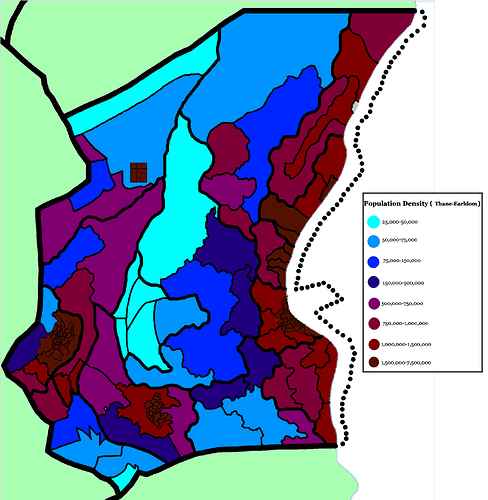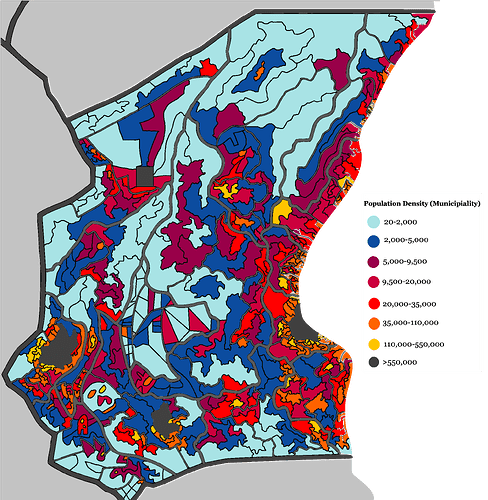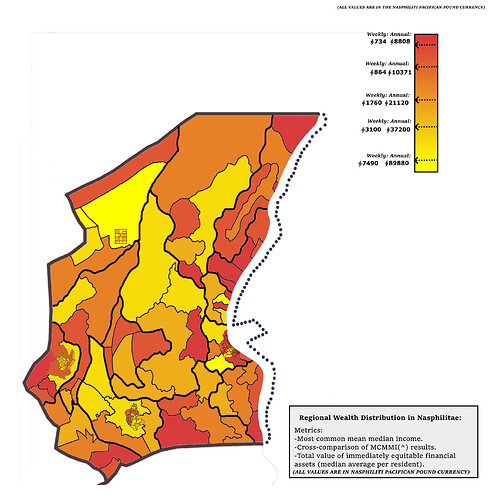NAACN 
›››››01.22.2024‹‹‹‹‹ × ›››››Issue:¶0060004014‹‹‹‹‹
CONTENTS:
National Registry Completed (Elena Bartlett)
The National Registry is now fully functional. In the previous issue, we were informed that it was incomplete, as it lacked information regarding local demographics. We’ve invited four researchers from the IaN institute to discuss each aspect of both data indicators and the transition process. First among which is Dr, Professor Elena Bartlett, who is the S.A. of Logic, Mathematics, Linguistics & Methodology; Leading the revitalisation of the National Registry together with Collin Ernest.
Elena Bartlett:
“Collin Ernest and I were tasked with providing a thorough and reliable source of data regarding Nasphilitae & its residents. Most of information gathered was quantitative in nature, though it did include certain qualitative aspects. The Registry holds sentimental value to me personally, since its manipulation was the reason as to why I left my academic positions. However, do not take any statements from me to be normative. The Registry was created, as Cohen and Moran can testify, as a tool. If one wishes to derive conclusions from gathered information, the information which is used serves as a presupposition. This determines that the source of a proposition (in this case, the Registry) must be reliable. Any further derivation is not my concern, this stance is examplified in the fact that I refused to partake in political or social movements during censorship. Nothing further to add.”
The data is available here:
Economic Indicators (Kaimana Cohen)
The economic indicators seem to be in a dire state. As such, the following guest is Countess, Professor Kaimana Cohen, founder of the Institute of Political Economy, OPAL, the National Registry and member of IaN.
Kaimana Cohen:
“I am in the process of writing a research paper for IaN, similar to the one written by my colleague Stenhouse, with the key obvious difference being that the topic is dealing with aspects of political economy in Nasphilitae. It is a cliometric showcase of Nasphiliti macroeconomics throughout the years. Motivations behind the research paper is that there are certain untrue axioms floating in Nasphiliti society regarding periods, growth, living standards (…)
To comment on the “dire state of economic indicators”, they are to be expected. It is a result of historical occurrences, most recent of which is the ISI (import substitution industrialisation), whose focal point was reducing unemployment regardless of quality as to where that employment is (re)allocated. As an example, I am not sure whose idea it was for Nasphilitae to allocate resources in developing the Biochemical Industry. The entities which (in the past) specialised in it were negligible within the wider national scope. Furthermore, the nature of all ISI-driven plans is to emphasise domestic demand of resources, of which Biochemicals are close to null (…)
I hope to finish the paper before the elections are concluded, since I do intend on offering different approaches to solving the ‘dire state’ of living standards.”
Electoral News
The paper which Cohen mentioned can be read here. Recent polling developments show that the SDVP and CGC are further falling in popularity, despite being the moderate versions of their rising counterparts, the UML and ADLA.
Surprisingly, when taking in account recent data from the National Registry on wealth disparity within Nasphilitae, there haven’t been major initiatives in creating local parties. Contrary to the Ordinance (implicit) provisions on ensuring that such interests be vital. In turn, this keeps the popularity of The Opportunity Party high.
Systemic Changes (Robert Stenhouse)
Stenhouse previously mentioned that the Ordinance may give rise to a Tory Party, though his research paper focused on systemic aspects of the current political landscape. Regarding this statement and recent developments, we’ve invited Robert Stenhouse for elaboration.
Robert Stenhouse:
“I’ve implied the reason as to why the Tory Party hadn’t formed in opening statements of my essay. All entities have postulated that the electoral monarchy be an axiom which they won’t question. This attitude, which is mostly a historical inheritance, diminishes the need for a monarchist party to be formed.
Regarding the lack of local parties, I do believe that part of the reason lies in your comment on popularity of the Opportunity Party. My essay emphasised internal structure of political parties for this exact reason. However, I believe that it is also why the UML and the ADLA are out-performing the SDVP and CGC, respectively. An additional reason for SDVPs lack of support, which was expected to be high, is their vanguardist attitude in a landscape where most of the population works for minimal wage. While such an attitude is not by itself self-sabotaging, the manner in which it is implicitly paraded could be described as tone-deaf.”
Internationalisation Progress
By internationalisation, once again, we mean the adaptation of international law and customs into domestic law. This is the definition used in the Ordinance, whose most staunch supporter was Ayala Moran, who we’ve invited to update the (domestic and foreign) public on developments in this aspect. The reason behind this is that we cannot contact legal workers directly, since it is seen as pressure or possible source of coercion.
Legal Changes (Ayala Moran)
So the last of our guests from the Ian is Madame, Professor Ayala Moran, former head of the Institute of Legal Studies and the Institute of Social & Cultural Studies. While she did quit her employment in these fields, the Ordinance allows for education staff within legal matters to ask for insight from legal workers.
Ayala Moran:
“Correction, in defining internationalisation here. The Ordinance defines it explicitly as international law as-is, it was the choice of our domestic courts to include both customary law. Reasons, given to me by my (former) colleagues, is that international law (namely the World Forum Resolutions) are by themselves skim. This is mentioned in the WF Preamble, wherein most regulations are not explicit within Resolutions, but do derive from customary law.
I did support the Ordinance for this exact reason. It correctly envisions that, due to the skeptical nature of Nasphiliti citizens in regards to foreign organisations, membership within the WF or any other international body would be very unpopular for any future government to enact. However, the internationalisation provides a method by which Nasphilitae is conducted in accordance to the international community, regardless of membership.
As for the progress, it is complete. The stalling stems from two other situations. First of which is lack of an elected government, though it is to be resolved soon. Second of which is lack of consensus on constitutionalisation. The future government is sure to influence the scope of the Constitution, though that is also not what I am referring to. Namely, there is no consensus among legal experts on the hierarchy of laws which the Constitution is expected to regulate.
I expect the hierarchy of laws debates and the accompanying categorisation of existing laws to be, together with economy, a main topic until May of next year, when the first regular elections are scheduled to occur.”
Funded by the NSBB.


